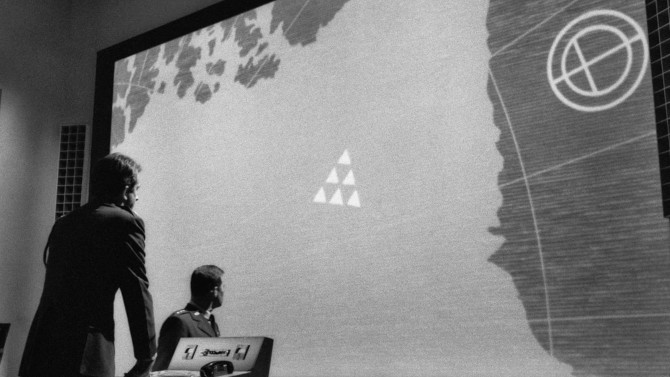
Safety First
Like a severe and utterly serious version of Stanley Kubrick’s 1964 satirical dark comedy Dr. Strangelove or: How I Learned to Stop Worrying and Love the Bomb, you would think that Fail Safe would have been the original release in theatres that was then later spoofed, yet that is not the case. Released approximately six months later in the same year, as you might imagine, it led to very poor returns at the box office – dare I say it (as the film deals with this subject matter)... it was a bomb! Despite that, over time, it has become a bonafide classic. Based upon Eugene Burdick’s 1962 novel of the same name and directed by Sidney Lumet (Dog Day Afternoon), he introduces us to our main players by way of little vignettes.
-
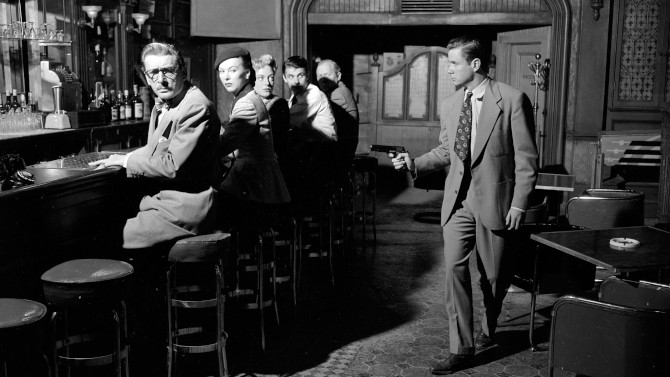
Dial 1119 For Murder
Dial 1119November 18, 2021The heat can make us all go a little bit crazy sometimes... but what happens when the thermometer is ready to pop and you’ve just escaped from the insane asylum? A confined, claustrophobic, sweltering film noir, 1950's Dial 1119, directed by Gerald Mayer (son of Louis B. Mayer), makes you feel the heat. Young, baby faced Gunther Wyckoff (Marshall Thompson) isn’t what he looks, he is, for lack of a better term, bonkers. Having already killed numerous people, it was police psychologist Dr. John Faron (Sam Levene), who was able to save his life from the electric chair.
-
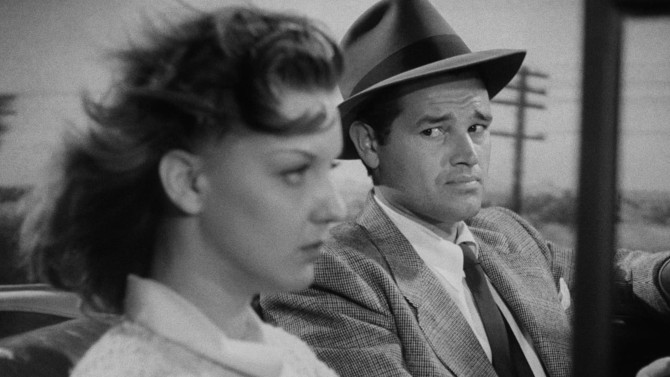
Just Deserts
DetourNovember 12, 2021You know you’ve got a budgetary problem when you find yourself on Poverty Row. For those of you who do not know, this was the slang term used for a group of low budget Hollywood B movie studios that existed in the City of Angels from the 20s to 50s. Transcending these financial constraints to make a quality film noir, director Edgar G. Ulmer used all the proverbial tricks in the book to develop Detour (1945). Told in a most unique way, a quasi-soliloquy narration transitions to nightmarish flashbacks as Al Roberts (Tom Neal) recounts his fatefully nihilistic tale (you might never see a more downtrodden visage). A cynical man, even before his girlfriend (closing in on fiancée), Sue Harvey (Claudia Drake), decides to leave him to make her own breaks in Hollywood, he is the prototypical down on his luck protagonist. It’s not like he doesn’t have a skill – a piano virtuoso, he can only find a job tinkling the ivories at a crummy nightclub in fog strewn NYC (fog was a useful tool for low budget productions that didn’t have the money for sets).
-
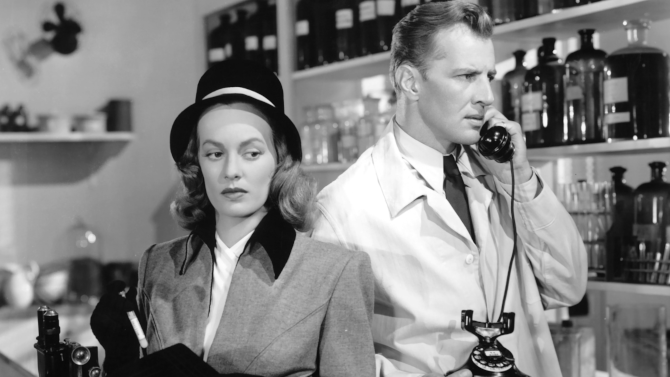
Stranger Danger
Danger SignalNovember 8, 2021A young woman’s cold dead body lays on a bed – an apparent suicide (there is a note); a man taking the wedding ring off her hand, then stealing money from her purse; he hops out of the window with his luggage, tweaking his leg in the process... this is the dark and intoxicating opening to 1945's Danger Signal, directed by Robert Florey. Based upon a novel of the same name by Phyllis Bottome, the above mentioned man is Ronnie Mason (Zachary Scott), he’s as smooth as silk, as silken as velvet, as velvety as velour... in other words, he’s a slick chameleon bluebeard that women should be wary of (but never are).
-
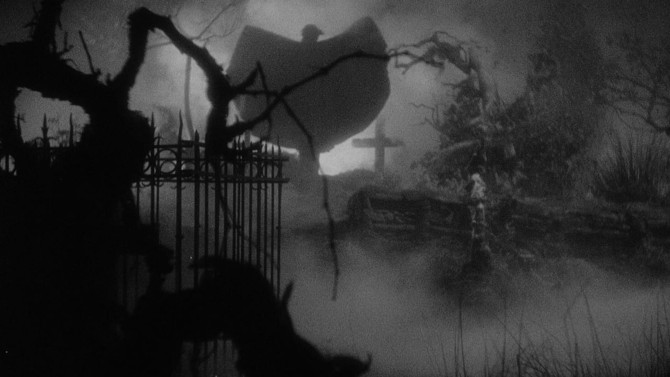
He Who Must Not Be Named
The Return of the VampireOctober 12, 2021It has long been lamented that Bela Lugosi only donned the cape once as Universal’s Dracula (excluding the much later comedy Abbott and Costello Meet Frankenstein), whereas their two other most famous creatures, the Frankenstein Monster and Wolf Man, were brought back to life a number of times by Boris Karloff and Lon Chaney Jr. respectively. Instead, for budgetary reasons, they cut Lugosi out of the sequel (Dracula’s Daughter – reviewed here on Filmizon this month), eventually giving the role to other actors (Chaney Jr. and John Carradine) until he finally returned to the role in 1948 in the above mentioned comedy. Yet, to say there is no true sequel to Dracula is not completely true. Columbia Pictures, looking to capitalize on the horror craze, aimed at producing a sequel to the Universal product. . . after being threatened with a lawsuit, they went ahead anyway – simply changing the Dracula name. Titled The Return of the Vampire (1943), B movie specialist Lew Landers was put in charge of directing the low budget fare.
-
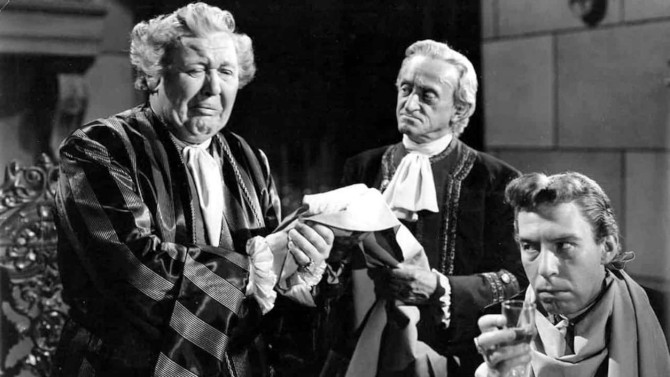
Trapped Door
The Strange DoorOctober 2, 2021A melodramatic horror thriller with more than a tinge of romance, 1951's The Strange Door, directed by Joseph Pevney, and based upon Robert Louis Stevenson’s “The Sire de Maletroit’s Door”, pairs together two all-time legends to great effect. Set outside of Paris in the 17th century, Charles Laughton is Sire Alain de Maletroit, the fattest cat in the region. Prancing around his expansive castle (adorned with a trap front door that cannot be opened from the inside – talk about strange), he is, in fact, quite like a feline – hopping up onto furniture, leaning against walls, demonstrating a playful if menacing flamboyant attitude to anyone he meets. Surrounded by a group of equally as vile ‘yes’ men, they thrive off of Maletroit’s malice.
-
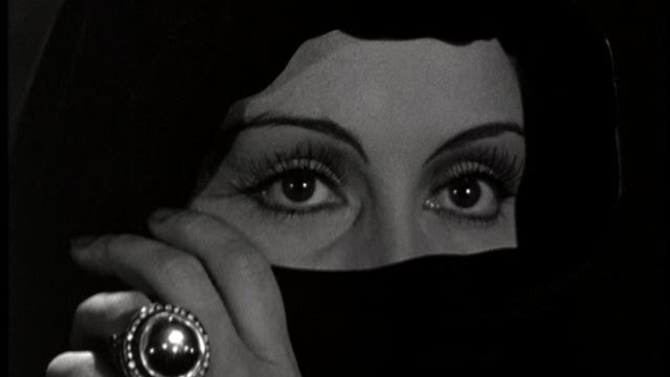
Like Father, Like Daughter
Dracula's DaughterSeptember 29, 2021Five years after one of its two gargantuan horror hits of 1931, Universal finally released its long awaited sequel. . . rather surprisingly, without the original film’s star making a return appearance. Dracula’s Daughter (1936 – celebrating its 85th anniversary this 2021), takes the bold stance of starting up immediately after the previous film’s conclusion (90 year old spoiler alert), where Bela Lugosi’s Dracula has just been killed by Dr. Von Helsing (Victor Van Sloan). Directed by Lambert Hillyer (a late replacement for A. Edward Sutherland – who moved on after delays), we pick up with poor Von Helsing being arrested by the police for the ‘staking’ murder of Count Dracula. Transported to Scotland Yard (along with the bodies of Dracula and equally as dead Renfield) by two cops, the pretending not to be scared Hawkins (Halliwell Hobbes) and the bumbling and utterly petrified Albert (Billy Bevan), the less than dynamic duo soon lose the body of the infamous Count.
